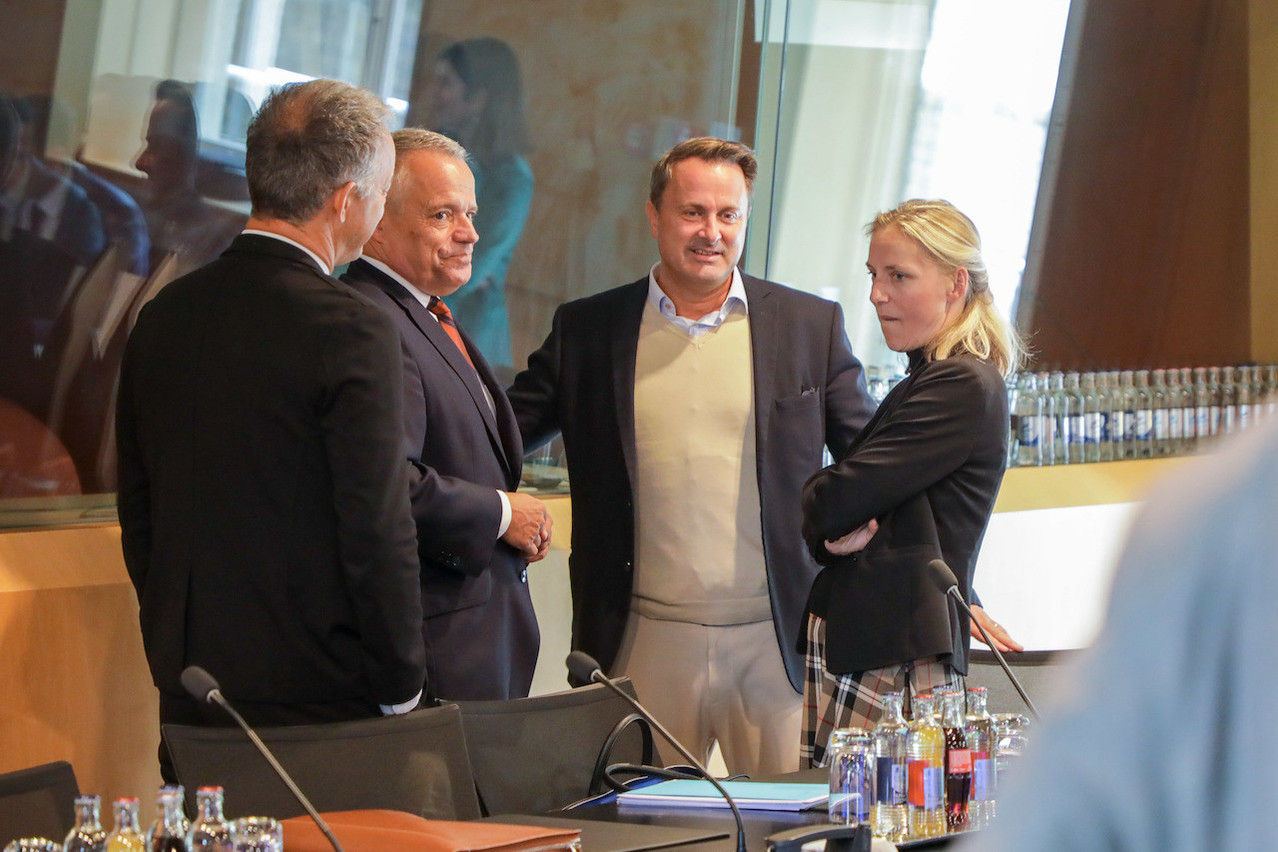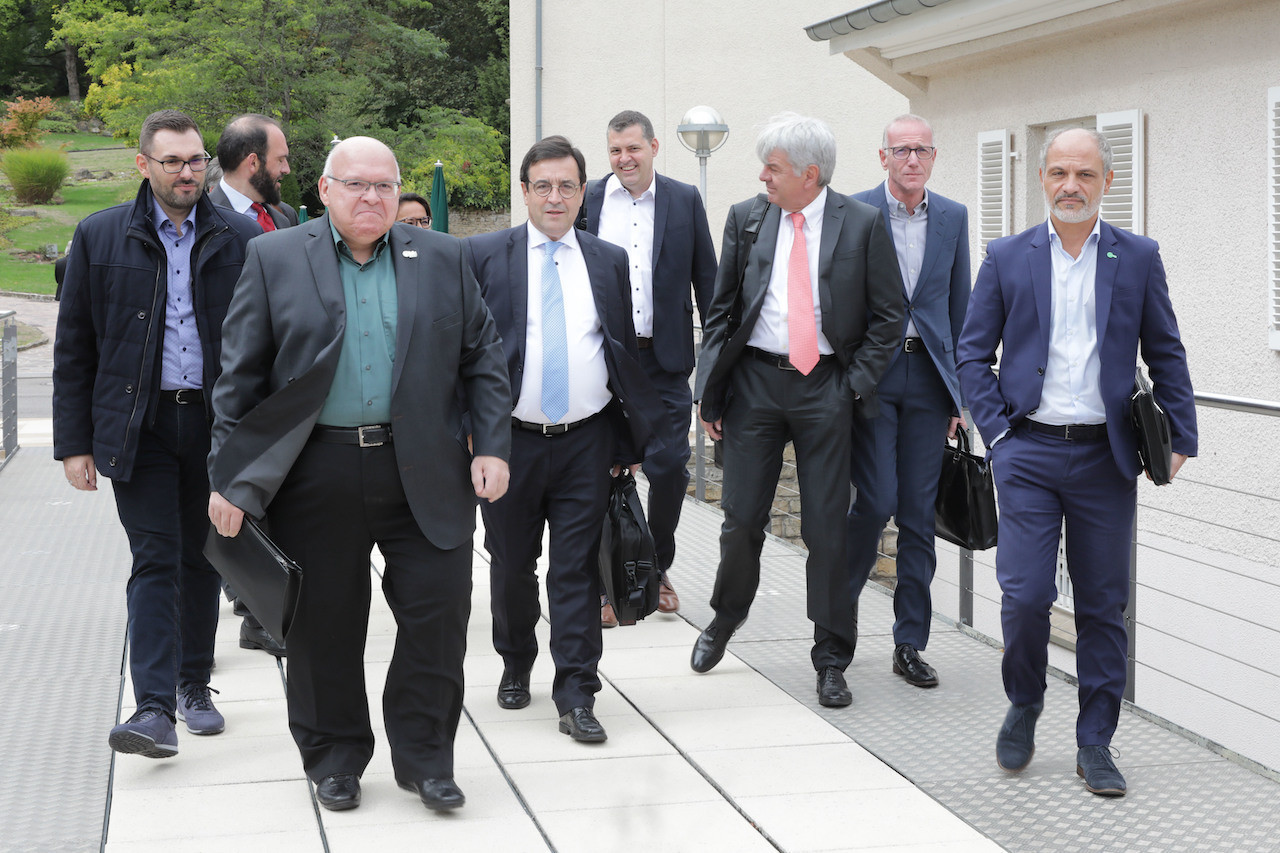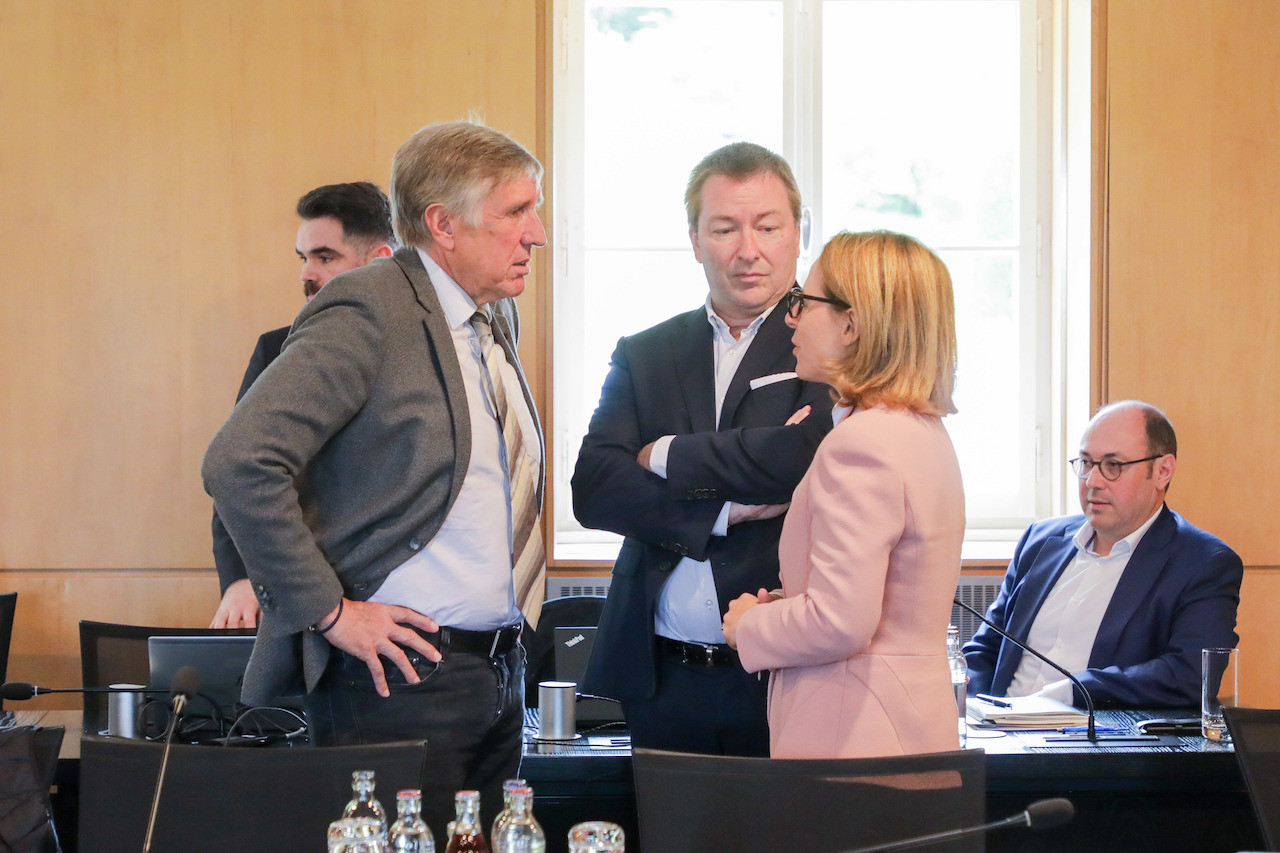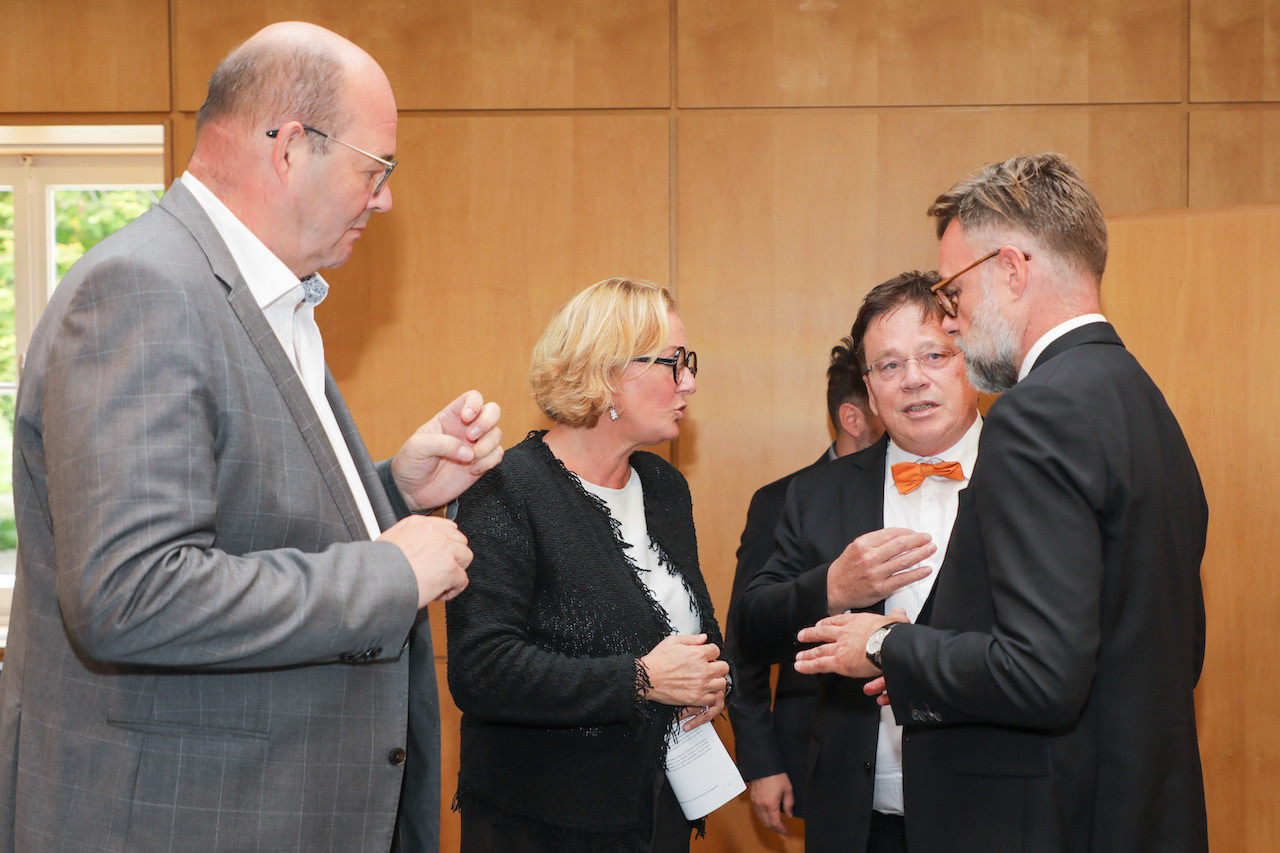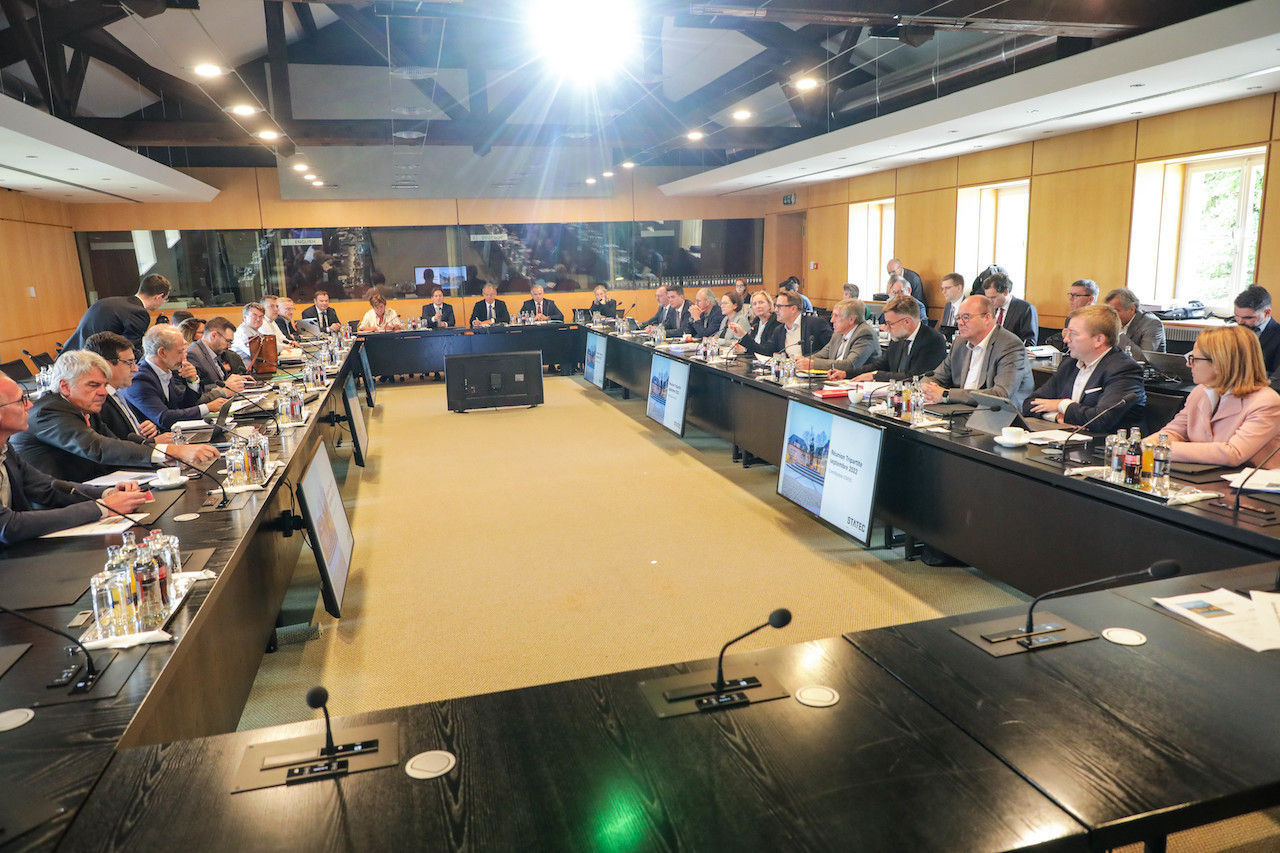With the stakes having arguably never been higher for the tripartite, details of what was discussed during the first day of meetings at Senningerberg castle were scant.
But prime minister Xavier Bettel did take to twitter on Sunday evening to suggest that the government is considering introducing an energy price cap.
“We proposed measures to the social partners that would keep energy costs for citizens and businesses as low as possible,” the prime minister wrote on the social media platform. “We are determined to guide our country through these uncertain times and will continue with that determination over the next days of negotiation with the social partners.”
Bettel said that the opening day of the tripartite had chiefly been used to analyse the situation – though the sides had met for bilateral preparatory meetings last week. As well as having to tackle the impact of rising energy costs, the three sides will also have to look seriously at Luxembourg’s automatic salary indexation measures which kick in when inflation reaches 2.5%. But with the cost of living expected to rise by as much as 6.8% this year--according to the worst-case scenario forecast by national statistics office Statec—multiple index increases are predicted for the coming months.
At a tripartite in March, all sides, apart from the OGBL union, agreed to postpone a second indexation tranche for 2022 until the spring of 2023 in exchange for the introduction of a tax credit and other forms of help.
But last week Bettel suggested that postponing any upcoming indexed salary rises was no longer a solution. On the other hand, employers will be seeking compensation for the costs of any additional indexations over the next 12 months.
Read also
The government finds itself not only having to strike a compromise between employers and unions, but also ensuring that whatever measures are taken to solve the crisis do not have such an impact on state coffers that they upset the country’s financial stability.
This tripartite, then, is perhaps the most important since the so-called Luxembourg model--the idea of resolving problems and conflicts in a spirit of consensus between the three sides--was called into being in the 1970s to help the grand duchy emerge from the steel crisis. All eyes will be on Senningerberg over the next two days.
